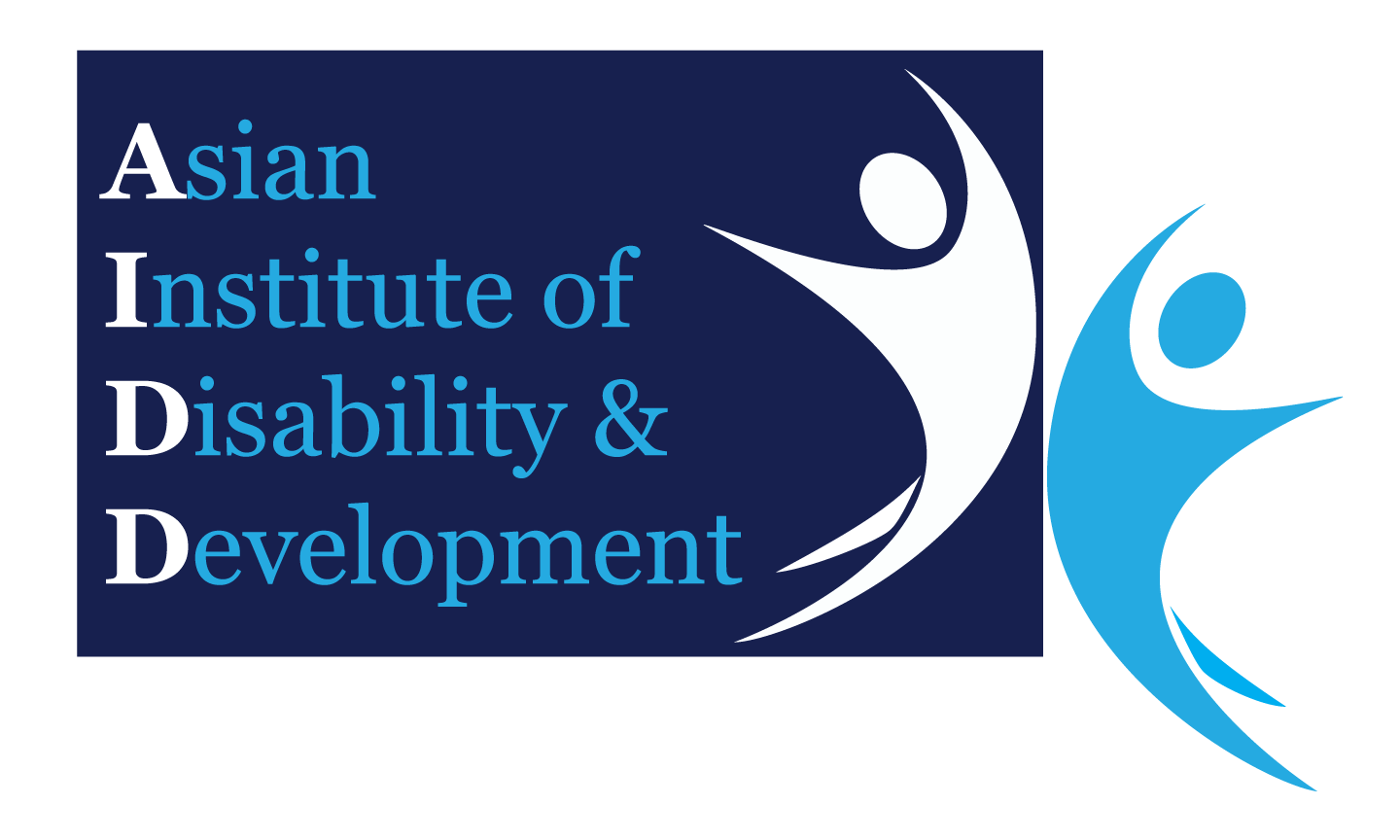
Fostering inclusion through evidence and empowerment


Training and Programs// Short Courses
Short Courses
AIDD offers a number of short courses jointly initiated, coordinated and conducted by AIDD and CSF Global along with other appropriate NGO partners.
Presently the institute is offering the following short training courses:
-
Key Informant Methodology (KIM) on Disability Research and Programs
-
Management of Epilepsy Among Children with Cerebral Palsy (CP)
-
Wheelchair Fitting and Adjustment
-
Cerebral Palsy and Malnutrition – detection, monitoring and prevention in low- and middle-income countries
-
Community Management of Cerebral Palsy (CP)
-
Establishment and Operation of Early Intervention Centres for Children with Cerebral Palsy (CP)
Key Informant Methodology (KIM) Training on Disability Research and Programs
This is offered as a three (03) day training course for professionals engaged in disability research and programs. This methodology was piloted by means of extensive field research in Bangladesh. The Key Informant Methodology (KIM) is an innovative social mobilization strategy to enable community-based diagnosis, treatment and provision of assistive devices for people with disability throughout hard to reach regional and rural areas of low and middle-income countries. KIM is important in the way that it provides data on the frequency and causes of disability in children and adolescents in the community. Key Informants (KIs) are highly-motivated community members who know their community well either through their occupational or social roles. They are commonly health workers, school teachers, non-government organization (NGO) staff, government staff, religious leaders, traditional healers, local journalists, or other people who are actively involved in the social network of their communities. KIs educate families and other community members about disability and forge linkages between children with disability and local services.
The Key Informant Method (KIM) has previously been tested by CBM, LSHTM and others, and found to be a valid method for the identification of children with severe visual impairment and blindness in Bangladesh, using community volunteers in the place of a door-to-door survey. Through collaboration the Key Informant Methodology has been successfully replicated and implemented in communities of other nations such as China, Indonesia, Pakistan, India, Ghana, Ethiopia, Malawi, Nigeria, Sudan, Kenya, Tanzania, and Vietnam.
Management of Epilepsy Among Children with Cerebral Palsy (CP)
This is a one-day long course for health professionals and caregivers on management of epilepsy among children with Cerebral Palsy (CP). This course is offered during camps organized by CSF Global as part of its Bangladesh Cerebral Palsy Register (BCPR) project. It provides a hands-on or experiential approach on management of epilepsy among children with CP; international experts (usually research fellows affiliated with AIDD) share knowledge and ideas, and provide instructions to the training participants as part of the activities at the epilepsy camps. Children with cerebral palsy and epilepsy are assessed over the camp duration for identification of the spectrum of epilepsy and coexisting medical problems, challenges to drug compliance and gaps in knowledge for epilepsy management amongst caregivers. The training program is supported by Cerebral Palsy Alliance Australia and is part of our Community-Based Management of Epilepsy for Children with CP study
Wheelchair Fitting and Adjustment
This is a one (01) day course for NGO professionals to enhance their skills and capacities for wheelchair fitting and adjustment. This course is based on the Wheelchair Service Training Package of the World Health Organization (WHO) that was developed in partnership with the United States Agency for International Development (USAID). The main purpose of the training package is to develop the skills and knowledge required by personnel involved in wheelchair service delivery. An important aim of the training package is integration into regular paramedical/rehabilitation training programs such as physiotherapy, occupational therapy, prosthetics and orthotics, rehabilitation nursing.

Establishment and Operation of Early Intervention Centres for Children with Cerebral Palsy (CP)
This is offered as a three (03) day training course on establishment and operation of early intervention and rehabilitation centres for children with physical impairments including CP. CSF Global operates a number of early intervention centres known as Shishu Shorgo (translates to Children’s Heaven in English) Early Intervention and Rehabilitation Centres in rural Bangladesh. The centres are staffed by personnel trained in rehabilitative services and other relevant skill sets. Various assistive devices and therapeutic equipment, specialized toys and study materials are available on the sites. The facilities provide an intensive therapy program lasting six (06) months with provision of follow-up for seven (07) months to aid transition to community, school and family support.
This training is intended for service providers engaged in rehabilitation for persons with disabilities. Participants will be introduced to the standard requirements for the centres such as the therapeutic and other equipment, be oriented towards their use and maintenance. They will also be made familiarized with the administration and management aspects of operating such a facility.


Cerebral Palsy and Malnutrition – detection, monitoring and prevention in low- and middle-income countries
This targeted training program equips mid-level rehabilitation workers with core skills and knowledge to address workforce shortages in nutritional screening and management for children with cerebral palsy in low-resource settings. Through interactive sessions and practical demonstrations, participants learn to assess nutritional status, utilize appropriate anthropometric measures, interpret growth charts, and implement effective prevention strategies based on the latest research and local evidence. The program fosters collaboration, builds capacity for routine nutritional monitoring, and empowers rehabilitation professionals to improve malnutrition outcomes among children with cerebral palsy across LMICs.
Training resource: Power point presentation/ hand note
Enrolment and More Information
Professionals engaged in disability research and programs, health professionals and workers, non-government organization (NGO) professionals, caregivers, and other interested individuals are encouraged to enroll into the short course training programs being delivered by AIDD.
However prospective training participants are encouraged to get in touch with AIDD early as seats for the programs are limited and schedules are fixed.
For more information please contact us at disabilityasia@gmail.com or +88-02-55040839
